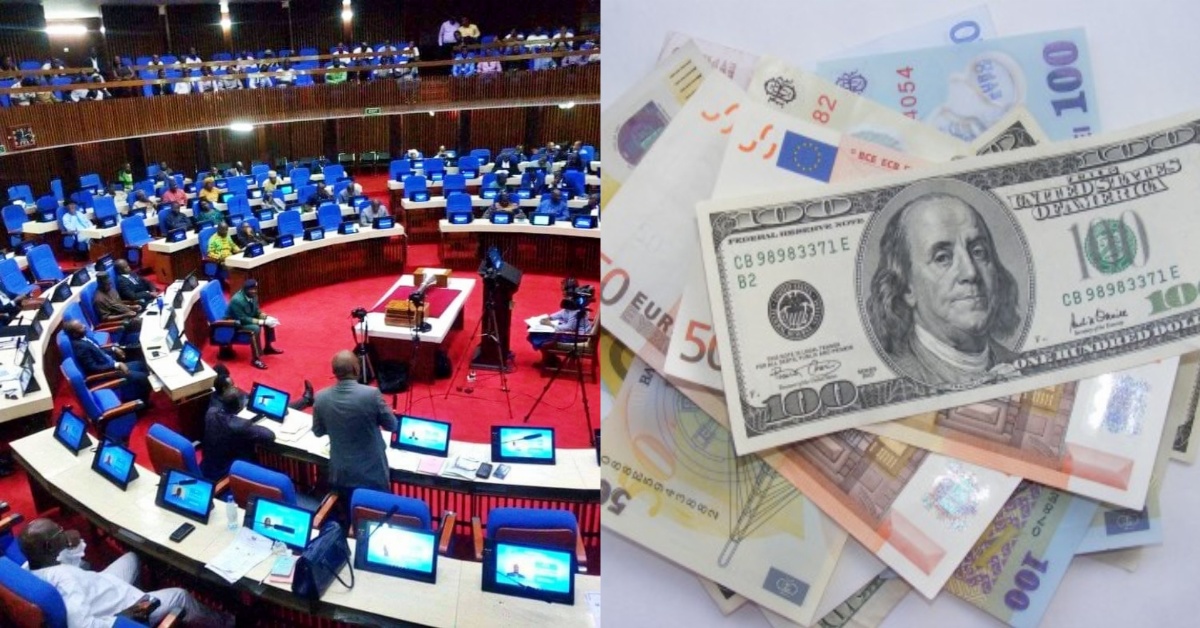Ibrahim L. Stevens, the Acting Bank Governor, has announced that the Parliament has approved an amendment to the Bank of Sierra Leone Act, 2019.
This amendment now permits the use of currencies other than the Leone in Sierra Leone for specific transactions as determined by the Central Bank.
The Act outlines the circumstances and conditions under which alternative currencies can be used as a medium of exchange in Sierra Leone. It also addresses related matters.
During the Bank’s Annual Conference last week, Stevens clarified that the accompanying Gazetted Guidelines will provide further details on when foreign currencies can be used within the economy.
For situations not covered by the Guidelines, individuals can reach out to the Central Bank to seek exemption or permission for using a currency other than the Leone if their circumstances are not clearly defined.
Section 26 of the Bank of Sierra Leone Act, 2019 is amended to include the following subsections immediately after subsection (5):
New subsection (6): Despite subsections (2), the Bank may specify, through guidelines, the circumstances and conditions under which other currencies can be used as a medium of exchange in Sierra Leone.
New subsection (7): Foreign currency receipts from transactions under subsection (6) shall be handled in the following ways: (a) credited to a foreign currency account in Sierra Leone, (b) sold to a licensed foreign exchange dealer, or (c) used to settle external obligations through licensed financial institutions.
According to the Guidelines, there are special circumstances where currencies other than the Leone can be used. These include:
Payments are required to be made in foreign currency under international treaties and agreements in which Sierra Leone is a signatory.
Contracts denominated in foreign currency that have been approved by Parliament.
Contracts related to donor-funded capital projects that involve imported inputs, including services.
Furthermore, individuals and businesses not licensed by the Bank to engage in foreign currency transactions can accept and make foreign currency payments for goods and services acquired in Sierra Leone if they fall into the following categories:
Licensed and registered tourist enterprises under the Development of Tourism Act, 1990, or any subsequent legislation.
Operators of duty-free shops, hotels, and restaurants at the Lungi International Airport.
Businesses that predominantly transact in foreign currency due to the nature of their operations. However, airlines may only receive payments in foreign currency by mutual agreement with their clients and must charge for services in Leone.
The Bank may determine other eligible circumstances from time to time.
Foreign currency received from such transactions as mentioned in Article 2.4 should be handled weekly in the following ways:
Deposited into a foreign currency account at an authorized foreign exchange dealer.
Sold to an authorized foreign exchange dealer.
Used to settle external obligations through authorized banks.
Entities benefiting from Article 2.4 are required to submit monthly reports to the Bank. Regarding the applicable exchange rate, the Bank of Sierra Leone states that when converting foreign currency prices into Leone for transactions under Article 2.4, the relevant exchange rate will be the average market exchange rate published by the Bank of Sierra Leone.



 1 Comment
1 Comment









Are we heading to a action with multiple currencies as media of exchange?